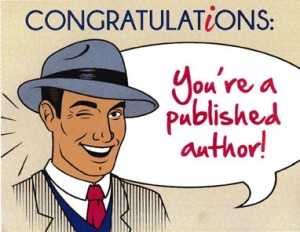
Yes, you know who I’m talking about—and it isn’t this amazing creature.
I’m talking about those opportunistic ‘professionals’ who take advantage of creative people. We all want to create, right? We want to write, draw, paint, design, etc., and don’t want to invest that precious energy watching our backs.
The bad news is that we have to!
Have you ever heard about ‘vanity presses’? I bet you have. In the past, they were the only option if you wanted to become a published author without ending up in a traditional publisher’s slush pile. They’re called ‘vanity’ presses because they cater for the so-called ‘vain and whimsical’ who aspire to have their work published. Meh! For a start, if you’ve written a book, any book, on any topic, you aren’t vain or whimsical. You don’t deserve to be taken for a ride. You’ve done the hard yards and good on you! Trouble is that there are some who are ‘out to getcha’.
Case in point: A very good writer, Ellis Shuman, one of my highly respected Twitter mates, tells us about his experience with iUniverse, a vanity press that these days disguises itself as a self-publishing facilitator. I’ve done my research and found that vanity presses are operating by stealth these days. I have found a number of articles on this subject which shed light on an aspect of human nature that is as old as the hills: if you have a deep-seated and legitimate wish, there will be a bullshit peddler out there ready to sell you a shoddy bill of goods or services that will cost you a bundle and you’ll get nothing in return. I recommend you read this Savvy Book Writers blog post. Even Random House is mentioned as potentially treacherous for un-agented writers!
Indiefolk do it the hard way. Just to give an example of how hard, these days I’m juggling my ‘day job’, trying to finish a couple of short stories and sorting out my PR strategy. Mind you, I’m not complaining. Life isn’t meant to be easy and I’m a creative person at heart. I’m hard working too. All the same, the self-preservation learning curve seems to get in the way of it all.
In any case, let’s keep on smiling. Have a great day, FFJ 🙂

